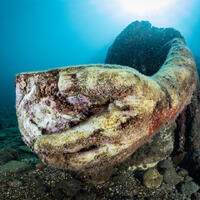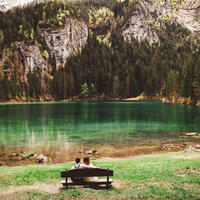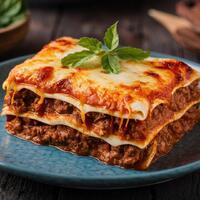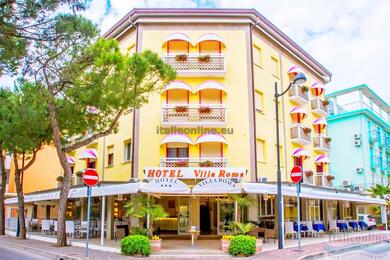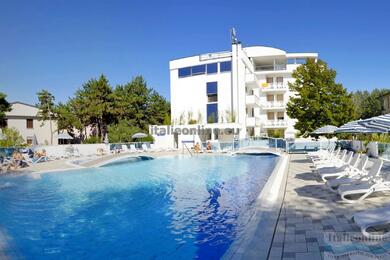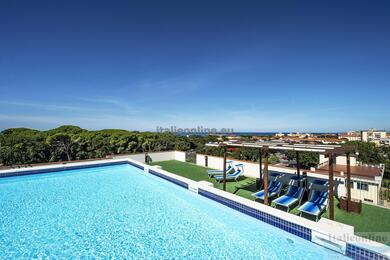If you decide to spend your holiday in Italy, you can stay in hotels or apartments, it's up to you which type you prefer and which level you choose. The main criterion for deciding between a hotel room and an apartment will probably be whether you want to spend your holiday to be completely independent and cook for yourself in your apartment, or if you prefer to stay in a self-catering hotel.
In the case of apartments, the price is always quoted for the whole apartment for a certain number of people (this number cannot be exceeded in the typology of each apartment - children are included in the total number of people).
In the case of hotels, the price per person in a double room including meals is given, persons (children or adults) on extra beds have a discount according to their age, single rooms are at an additional cost.
The apartments are always equipped as indicated in the description. In most cases they are furnished simply and efficiently with basic furniture and a kitchenette with a fridge.and a stove and common utensils (beware - you will not find an electric kettle in an Italian apartment - Italians do not use them). They are usually not equipped with bed linen, towels, tea towels, cleaning products, matches and toiletries.
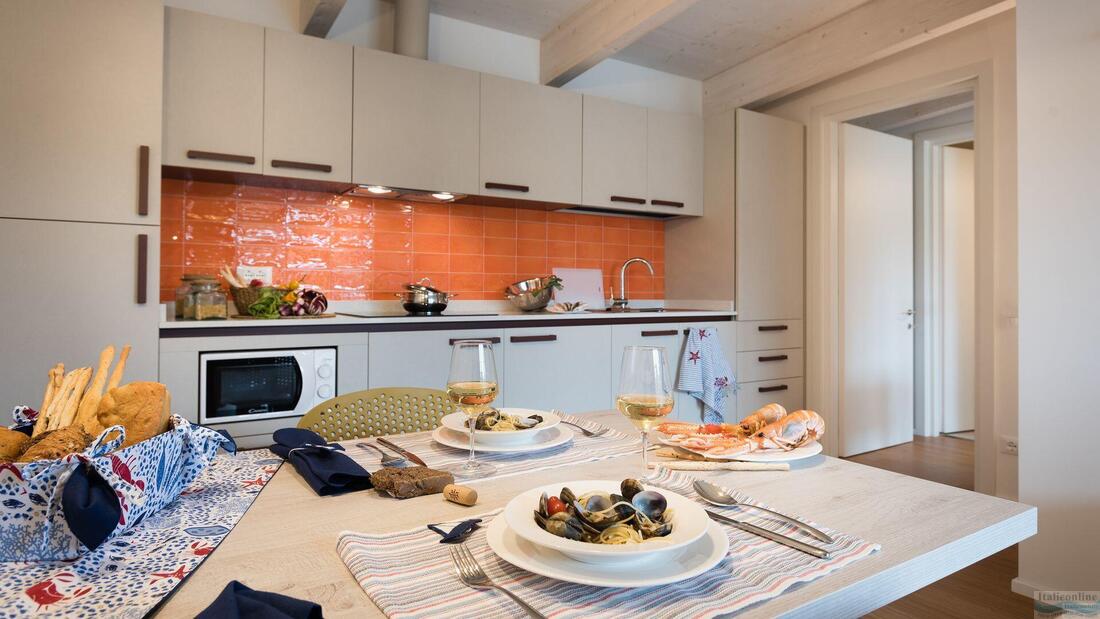
The designation of the apartments is as follows:
mono (studio) - living room with kitchenette and beds, usually for 2-4 people
bilo - living room with kitchenette and separate bedroom, usually for 3-5 people
trilo - living room with kitchenette and two separate bedrooms, usually for 4-7 people
quadri - living room with kitchenette and three separate bedrooms, for more than 6 people
One bedroom is often referred to as a double bedroom with a double bed or an extra bed or bunk bed, the others are sleeping quartersanother 1-2 people have a sofa bed in the living room. The distribution of beds may not always be exactly as described.
Apartments must be handed over on departure in the same condition as when they were taken over - i.e. clean and tidy. Even if the price includes a final cleaning (or is payable locally), it is the client's responsibility to clean the kitchenette, defrost and wash the fridge, wash the dishes and take out the rubbish.
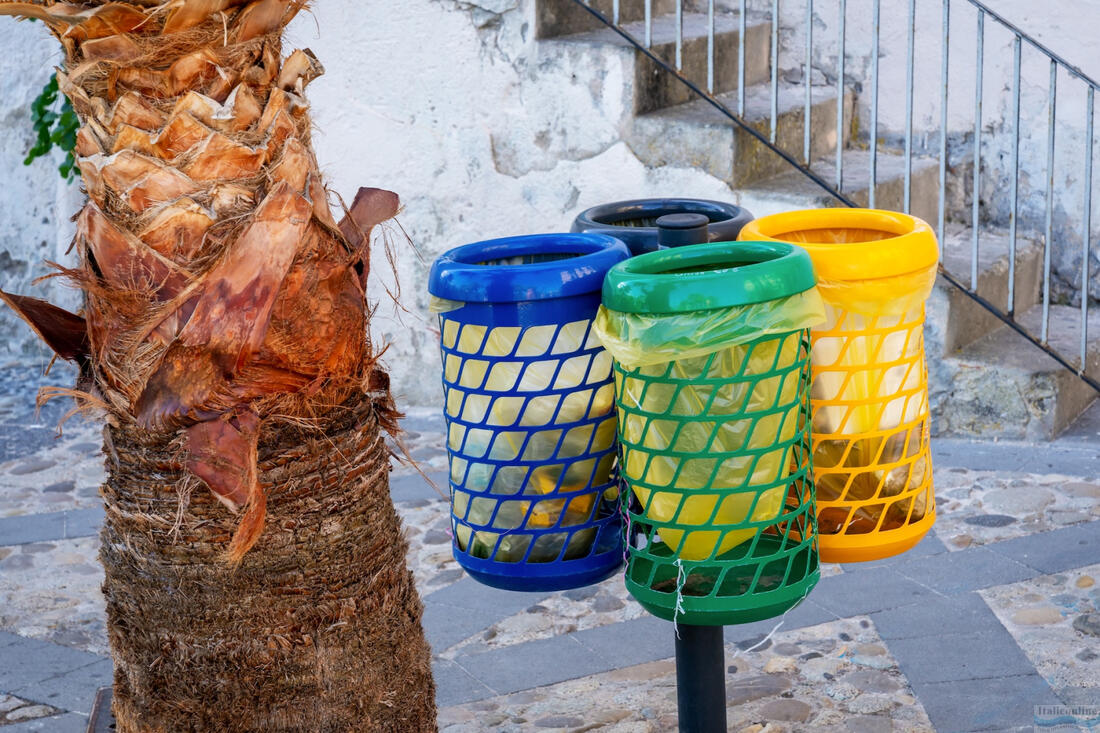
If the apartment is not cleaned sufficiently, the agency may deduct the cleaning fee from the deposit. In this case, the deposit, its use or refund should be discussed on the spot with the agency that handled the deposit.
The water is almost always potable, but is generally not used for direct consumption. We recommend buying bottled water.
Sockets in Italy and Spain are usually on a thin fork, here you need to buy a reducer (for about 2-4 euros, commonly sold in homeware and any larger convenience store). However, you can often find European type sockets.
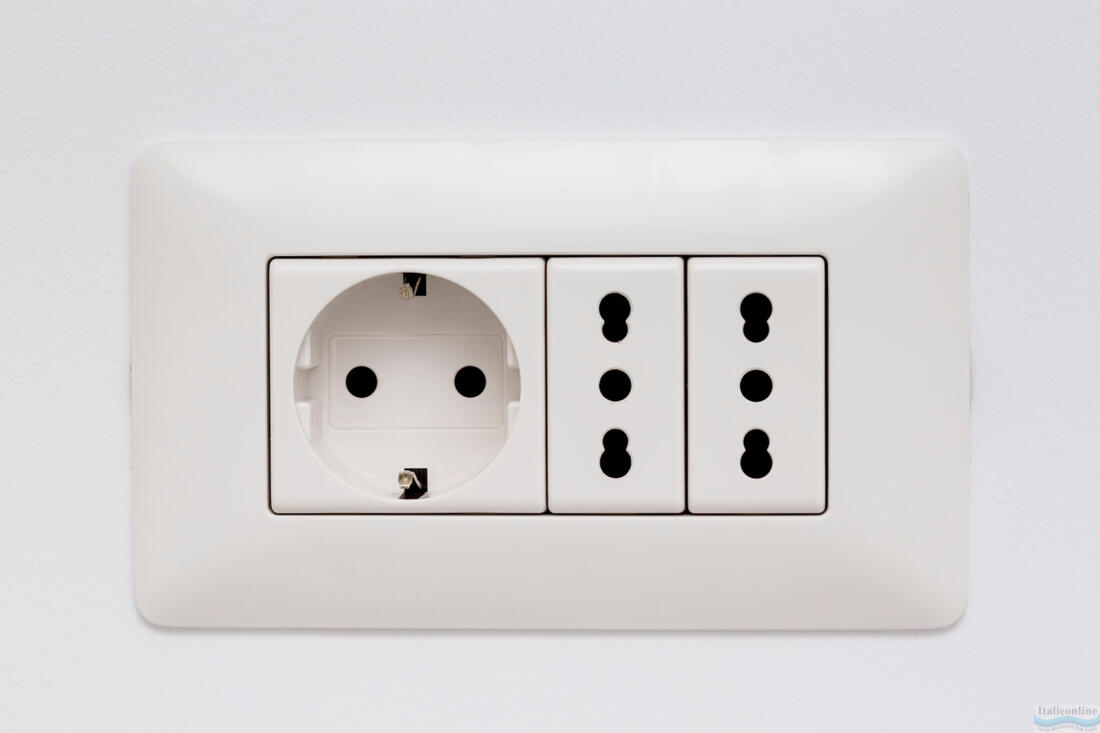
Don't leave any valuable items in apartments or rooms, use safes where possible. Neither apartments nor hotel rooms are designed or equipped to hold money or valuables. Use the safe at the hotel or agency reception to store cash or valuables. When leaving, close windows and balcony doors or close blinds. Do not leave the balcony door open at night and always draw the blinds.
If you are travelling with a dog, you must choose an accommodation where pets are allowed and declare it at the time of booking, at the residencein hotels and hostels, it must only be on a lead and must not disturb or annoy other guests by barking.


